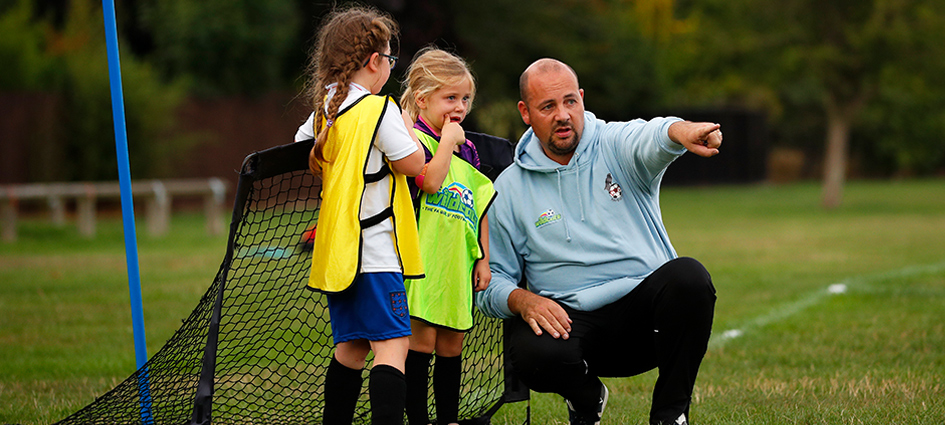Top tips

Top tips: the psychological corner
- Rebecca Garlick
- 10 April 2019
Rebecca Garlick, FA county coach developer for Manchester, looks at how coaches can help players to flourish in the psychological corner of The FA's 4 Corner Model.
1. Psychological safetyPlayers should feel safe to take risks in order to grow, learn, contribute and perform effectively. You can support this through taking an interest in your players as people, demonstrating respect towards individuality and providing constructive feedback.
2. Setting boundariesFootball is a team sport made up of individuals with different values and beliefs. Therefore, it's important to work with your group to define what is deemed as acceptable behaviour towards each other within the environment.
3. Reframing successThe results of football matches are often unpredictable and a coach can never fully control the variables affecting the outcome. Instead, it's helpful to reframe what success might look like for individuals and the group. Work with your players to identify what they want to achieve and align this with the objectives of the team. You can then set some specific, measurable and achievable targets over a period of time.
It’s important to help players to ‘own’ their emotions so that the impact of their behaviour is positive
4. It’s good to talk
Football can be an emotional environment and often we expect players to be able to manage the feelings that come with this – even if they haven’t learnt to do so yet. Rather than using language which tries to shut down these emotions, help your players explore how they feel. Questions such as “tell me how that makes you feel?” can be beneficial in helping players recognise, understand and manage their emotions.
5. Strategies to own emotions
It’s important to help players to ‘own’ their emotions so that the impact of their behaviour is positive. Try empathising, managing your own behaviours and explaining the consequences of certain emotions or behaviours on others.
6. Varied practices
The variables that players face on matchday can be a challenge. Stress levels increase when players are uncertain, conditions are unpredictable and the volume of ‘stretch’ in terms of challenge is turned up. When designing practices, it’s important to consider how to recreate this in your activities. As a result, your players will be challenged to anticipate, search and adapt effectively as they become more confident and controlled in managing differing stimulus.

7. Pressure in practiceBy using realistic opposition during practice sessions your players will begin to find solutions to the unpredictability and uncertainty of matchday. Boris Kubla from the Croatian Football Federation stated that “opposition gives us obstacles” which subsequently increases the complexity of the game and makes finding solutions more difficult.
8. Maximising timeFor lots of coaches time is precious, particularly in grassroots where on average coaches have around two hours a week to work with players. Therefore it's important to consider what learning opportunities can take place in the psychological corner during breaks in play or practice. You might ask a question which helps your players to reflect or that might help them to prepare for what’s coming next. For example: “in the next part of the practice I am going to challenge you with this, take a few minutes as you’re having a drink to think about how you might approach this task”.
The above article is based on a workshop presented by Dan Abrahams at the United Soccer Coaches’ convention in Chicago 2019.































